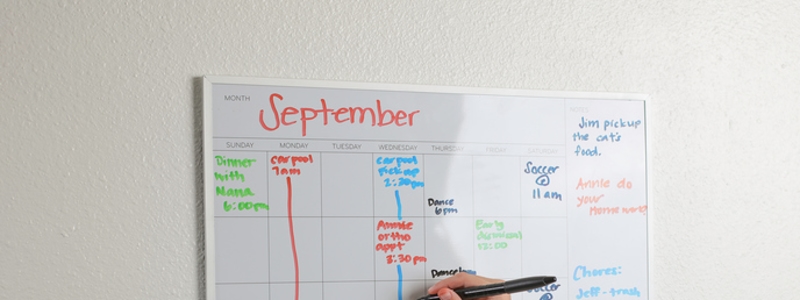Extra-curricular activities, social events, school, family time and homework is an average day for many kids, meaning life can get pretty busy. In fact, school-age kids spend an average of five hours per-week at organised activities, which is over half a school day. It’s clear that some kids have too much to do but not enough time to do it. An extreme schedule can in some cases cause unnecessary stress, anxiety and burnout, which no parent wants for their child. Surely something’s got to give?
Why Are Kids So Busy?
Often parents feel it’s productive for their kids to be occupied and active rather than being left with too much free time. However, even when intentions are good, kids can easily become over scheduled. Here’s just a few things kids are fitting into a regular day.
- School
- Homework/Projects
- Exam revision
- Socialising with friends
- After-school activities
- Family time
- Down time
Signs That Your Kids Are Too Busy
Over scheduling can really take a toll on your child’s school work, health and general happiness. Overtime your child will probably start to feel overwhelmed with daily life and find they’re struggling to fit everything in. Here are a few signs that your kids are too busy:
- Feeling tired
- Anxiety and depression
- Trouble sleeping
- Headaches and stomach aches due to stress
- Starting to fall behind at school
- Change in behaviour/attitude
Take action!
If you do recognise any of the signs above it’s definitely time to take action. As parents, it’s important to step back and make sure your kids aren’t burning out. To do this firstly take a look at your child’s typical week and highlight the areas that can be changed. For example, if your child takes part in 5 different after-school clubs per week, ask them to choose their favorite two and say no to everything else. Scheduling in moderation is key.
Maintaining a Simple Schedule
Once you’ve cut back your child’s schedule so it’s manageable and more enjoyable, it’s crucial to maintain it together. To do this you will need to set a few simple rules.
Set limits together. This can be seeing friends out of school twice a week, taking part in one extra-curricular sport and spending an hour each evening studying. There are no set number of activities to abide by, it really depends on what works best for you and your kids. Write down your agreement and stick to it!
Set priorities. Make sure your child recognises that school should always come first. If you notice they’re having trouble keeping up, it may be time to drop an activity and review the limits you agreed earlier.
Downtime is important. Free time should be crossed out on the family calendar so everyone knows that nothing else can be planned. Everybody needs time to relax, reflect and take a moment out of a hectic life. After all, kids need time to just be kids. Whether this is just blowing off some steam in the back garden, reading a book, riding a bike, listening to music or playing a game, it’s an important part of a balanced and happy life.

